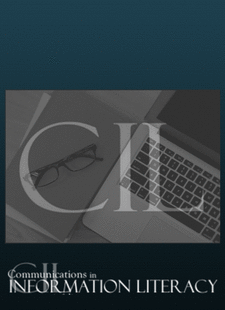Academic Research
Demarcated: Scholastic Journalism, Collegiate Journalism, and the Struggle to Define US Journalism Education
During the interwar years (1920-1939), academic institutions strategically positioned themselves as the legitimate gatekeepers of the profession, transforming journalism from trade to elite discipline
Journalism Practice, 2025.

Cognitive Apprenticeship Strategies for the Media Literacy Classroom
Educators leverage real-world topics and engagement-driven content to apply cognitive apprenticeship principles in a semester-long course. This case study offers insights on building students' confidence in navigating information independently.
Communications in Information Literacy, 2024.

Demarcated: Scholastic Journalism, Collegiate Journalism and the Fight to Define Journalism Education

Tensions between scholastic and collegiate journalism programs in the 1920s-30s centered on who could teach, learn, and ultimately practice journalism professionally.
Association for Education in Journalism and Mass Communication Annual Conference
Philadelphia, PA, 2024
Streaming Media Literacy: A Theoretical Solution to a Practical Problem

College students spend more time watching films and TV than consuming news or doing research, but are they equipped to understand the impact of their media diet?
National Association for Media Literacy Education Annual Conference
Remote, 2024
Boundary Work, Specialized Accreditation for Journalism, and the Fair Labor Standards Act of 1938
How a federal judge's ruling on overtime pay sparked a battle for journalism's professional status and educational standards.
Named second-place faculty paper by History Division at the Association for Education in Journalism and Mass Communication Annual Conference.

Association for Education in Journalism and Mass Communication Annual Conference
Washington, D.C., 2023
Re: Beyond Fake News
A new approach to news literacy highlights the impact of journalistic standards and organizational influences on news creation, and the role of individual biases in news consumption.
Named in the American Library Association's Library Instruction Roundtable Top 20 instruction articles for 2023.

Journal of Media Literacy Education, 2023
Uncovering the Protest Paradigm Through Visual Framing: A Media Literacy Lesson for College Students

Media literacy lesson plan uses protest images to teach college students how to identify protest paradigms and visual framing in mainstream news media.
National Association for Media Literacy Education Annual Conference
Remote, 2021




